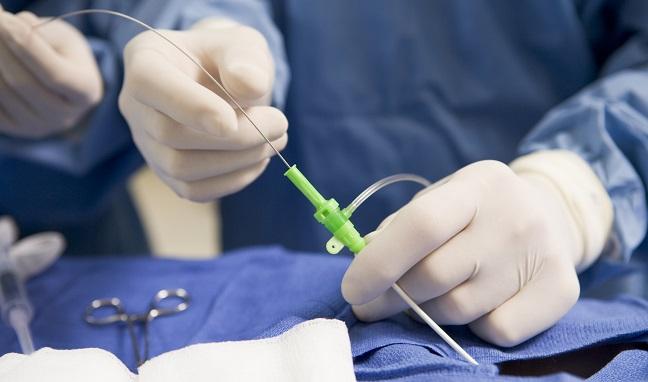Locating a Cardiologist near me that offers holistic heart solutions
Locating a Cardiologist near me that offers holistic heart solutions
Blog Article
Understanding the Importance of Cardiology in Modern Medical Care Services
Cardiology plays an essential role in modern medical care, specifically as cardiovascular disease remains to be the leading reason for death worldwide. Advances in diagnostics and therapy have actually changed person care, enabling earlier treatments and boosted outcomes. The change in the direction of precautionary cardiology encourages individuals to handle their health and wellness proactively. As technology remains to progress, the combination of cutting-edge solutions might better redefine cardiology's effect on public health and wellness, prompting a closer examination of emerging patterns and their effects.
The Prevalence of Heart Problem and Its Impact on Public Health
Heart illness stays the leading cause of fatality internationally, its influence expands far beyond individual clients to affect public health and wellness systems and economic situations. The high prevalence of heart illness places a significant strain on healthcare resources, necessitating raised funding for therapy, recovery, and prevention programs. Public health efforts have to resolve threat elements such as excessive weight, cigarette smoking, and less active way of lives, which contribute considerably to the climbing incidence of heart conditions.Moreover, the economic problem associated with cardiovascular disease is enormous, encompassing not only straight clinical costs yet likewise indirect expenses connected to lost performance and early mortality. Areas deal with challenges in handling these expenses, usually bring about disparities in health care accessibility and outcomes. As the populace ages and lifestyle-related dangers proceed to rise, the necessity for efficient cardiology treatments becomes paramount. Attending to heart disease is not only a matter of individual wellness but additionally an important public health concern.
Breakthroughs in Heart Diagnostics and Imaging Techniques
Recent developments in cardiac diagnostics and imaging methods have transformed the field of cardiology, enhancing the ability to monitor and spot heart diseases. Techniques such as cardiac MRI, CT angiography, and echocardiography have actually come to be progressively innovative, supplying thorough photos of heart frameworks and features. These methods enable the early identification of conditions like coronary artery illness, heart failure, and valvular disorders.Moreover, advancements in non-invasive diagnostics, such as wearable modern technology and remote surveillance gadgets, have encouraged patients and doctor. These devices facilitate real-time tracking of heart rhythms and various other necessary indications, leading to prompt treatments. In addition, expert system is being integrated into imaging evaluation, enhancing precision and effectiveness in diagnosis.
Innovations in Therapy Alternatives for Heart Issues
Current improvements in cardiology have actually led to substantial innovations in treatment options for heart disease. These consist of sophisticated medical techniques that boost step-by-step outcomes and emerging medicines that supply new avenues for treatment. As the field develops, these technologies play a crucial function in improving person treatment and results.
Advanced Surgical Techniques
Technologies in surgical techniques have transformed the landscape of cardiology, providing brand-new wish for clients with heart disease. Minimally intrusive treatments, such as catheter-based interventions, have actually substantially decreased recuperation times and medical facility keeps. Techniques like robotic-assisted surgery improve precision, enabling surgeons to browse intricate anatomical frameworks with greater accuracy. Moreover, improvements in imaging innovation assist in real-time visualization throughout procedures, boosting end results. Transcatheter aortic valve replacement (TAVR) exhibits a development in treating aortic constriction, making it possible for valve substitute without open-heart surgical procedure. Additionally, hybrid techniques that integrate medical and catheter-based methods give tailored solutions for different cardiac concerns. These innovative surgical techniques not only improve client safety but also expand treatment alternatives, emphasizing the critical function of innovation in contemporary cardiology techniques.
Emerging Medications and Treatments
As the landscape of cardiology continues to advance, emerging medicines and therapies play a critical role in improving treatment alternatives for heart disease. Advancements such as novel anticoagulants and progressed lipid-lowering representatives have transformed the administration of heart diseases, considerably lowering client morbidity and death. Furthermore, the development of gene treatments and regenerative medication offers promising methods for dealing with conditions previously deemed permanent. Professional tests are continually exposing the efficacy of these therapies, pressing the boundaries of typical therapies. The integration of electronic health innovations promotes individualized medicine, permitting for tailored therapy strategies based on hereditary and way of life factors. Jointly, these improvements emphasize the vibrant nature of cardiology, enhancing patient results and redefining requirements of care in modern-day medical care.
The Role of Preventive Cardiology in Client Care
Preventive cardiology plays a vital role in person treatment by concentrating on the recognition of threat elements that contribute to heart illness. With way of life modification strategies and very early detection strategies, health care service providers can effectively lower the occurrence of cardio events - Cardiology care. This aggressive technique not just enhances person end results however likewise advertises lasting health
Threat Variable Identification
While heart diseases remain a leading root cause of morbidity and death worldwide, efficient danger aspect identification works as a foundation of precautionary cardiology. Determining risk elements such as hypertension, household, hyperlipidemia, and diabetes mellitus history is vital for very early intervention. Medical care professionals use different screening approaches to assess these factors, enabling tailored preventative procedures. Additionally, comprehending a patient's way of living options, such as smoking and physical lack of exercise, further notifies risk assessments. This comprehensive analysis enables medical professionals to develop individualized care plans focused on mitigating risks. By focusing on risk element recognition, healthcare systems can improve person outcomes and minimize the overall problem of heart diseases, inevitably adding to enhanced public wellness strategies and resource appropriation.
Way Of Life Alteration Strategies
A wide range of researches highlights the critical function of way of life alteration strategies in minimizing heart disease risk. These methods incorporate nutritional adjustments, increased physical task, smoking cessation, and weight management. By adopting a heart-healthy diet rich in fruits, vegetables, whole grains, and lean proteins, individuals can reduce cholesterol degrees and high blood pressure. Routine physical task reinforces the heart and boosts overall cardio wellness. In addition, quitting cigarette smoking substantially decreases the risk of heart disease and improves healing prices for those with status quo. Weight administration further adds to cardiovascular wellness by reducing various other threat variables such as diabetes mellitus and high blood pressure. Implementing these way of living changes not only advertises private wellness but also functions as a cornerstone of precautionary cardiology in person treatment.
Very Early Detection Methods
Lifestyle alterations considerably add to decreasing cardio disease dangers, however they are most efficient when coupled with early discovery methods. Preventive cardiology highlights the significance of identifying potential heart concerns prior to they intensify into serious conditions. Strategies such as blood pressure surveillance, cholesterol screening, and advanced imaging modern technologies like echocardiograms play critical roles in assessing cardio wellness. Biomarkers and hereditary testing also boost the precision of very early detection, permitting tailored precautionary methods. Regular heart risk assessments empower health care companies to interfere proactively, possibly stopping cardiovascular disease and strokes (Dr Garcia). By integrating these very early detection techniques right into routine care, patients can profit from prompt lifestyle interventions and targeted therapies, inevitably boosting and enhancing outcomes quality of life
Integrating Innovation Into Cardiology Practices
As advancements in modern technology remain to reshape numerous areas, the assimilation of cutting-edge tools and systems into cardiology methods has actually become essential for enhancing individual care and end results. Telemedicine systems allow cardiologists to monitor clients from another location, boosting accessibility to care while minimizing the concern on medical care centers. Wearable tools, such as smartwatches, enable continuous heart rate monitoring, alerting both medical professionals and people to possible concerns in real-time. In addition, fabricated knowledge why not check here (AI) is being made use of to examine vast amounts of cardiac information, aiding in very early diagnosis and tailored therapy plans. Advanced imaging techniques, including 3D echocardiography, enhance visualization of heart structures, leading to more specific treatments. Electronic health records (EHRs) streamline patient details administration, guaranteeing that cardiologists have immediate accessibility to crucial information. With each other, these technical improvements are changing cardiology, promoting positive management and boosted wellness results for clients with cardiovascular problems.
The Relevance of Client Education And Learning and Interaction
Patient education and learning and involvement play an essential role in the administration of cardio health. By outfitting clients with expertise about their problems, therapy options, and way of life changes, doctor encourage people to take an active function in their treatment. This positive approach can result in enhanced adherence to prescribed medicines, nutritional adjustments, and exercise programs, inevitably this hyperlink minimizing the danger of complications.Engagement also fosters a solid patient-provider connection, urging open interaction and count on. When people really feel informed and included, they are most likely to voice issues and ask questions, which can cause far better medical end results. Furthermore, educational sources, such as workshops or electronic platforms, can enhance understanding and advertise self-management strategies. On the whole, focusing on person education and learning and interaction is essential for boosting cardio health, improving lifestyle, and reducing medical care costs related to cardiovascular illness.
Future Trends in Cardiology and Their Prospective Influence

Frequently Asked Questions
What Way Of Living Adjustments Can Reduce Heart Problem Danger?
The existing inquiry addresses way of living adjustments that can substantially decrease heart condition danger. Cardiology care. Adopting a balanced diet regimen, engaging in routine physical activity, maintaining a healthy and balanced weight, managing stress, and staying clear of cigarette can significantly boost cardio health
Just How Can I Acknowledge Very Early Indications of Heart Issues?
Identifying early indicators of heart problems entails monitoring signs such as breast pain, lack of breath, fatigue, and irregular heart beat. Timely understanding of these indications can trigger necessary clinical assessment and treatment for better results.
What Are the Differences Between Cardiologists and Heart Surgeons?
The differences between cardiologists and heart cosmetic surgeons depend on their roles; cardiologists mostly diagnose and handle heart conditions with non-invasive approaches, while cardiac cosmetic surgeons execute surgeries to remedy architectural heart problems. Each plays a vital, unique function.

Just how Commonly Should I Obtain My Heart Health Checked?
The regularity of heart medical examination differs based upon individual risk variables. Normally, adults should undertake assessments every one to two years, while those with existing problems may call for even more frequent analyses as recommended by healthcare specialists.
What Role Does Genes Play in Heart Problem Risk?
Genes greatly influences heart problem danger, with familial patterns showing inherited problems. Particular genetics can predispose people to high blood pressure, cholesterol issues, and various other cardiovascular issues, highlighting the importance of hereditary screening in examining web link heart health. Heart illness continues to be the leading cause of fatality around the world, its effect expands far past individual clients to influence public health systems and economic situations. Public health efforts must attend to threat variables such as weight problems, smoking, and inactive way of livings, which contribute significantly to the climbing occurrence of heart conditions.Moreover, the economic concern linked with heart condition is enormous, encompassing not only direct clinical prices but also indirect costs connected to shed productivity and early death. Preventive cardiology plays an essential duty in client care by focusing on the identification of risk elements that add to heart condition. Fabricated intelligence (AI) and machine understanding are boosting diagnostics and patient monitoring, enabling early detection of heart diseases. The differences between cardiologists and heart doctors exist in their functions; cardiologists largely take care of and detect heart problems through non-invasive approaches, while cardiac specialists perform medical treatments to remedy structural heart problems.
Report this page